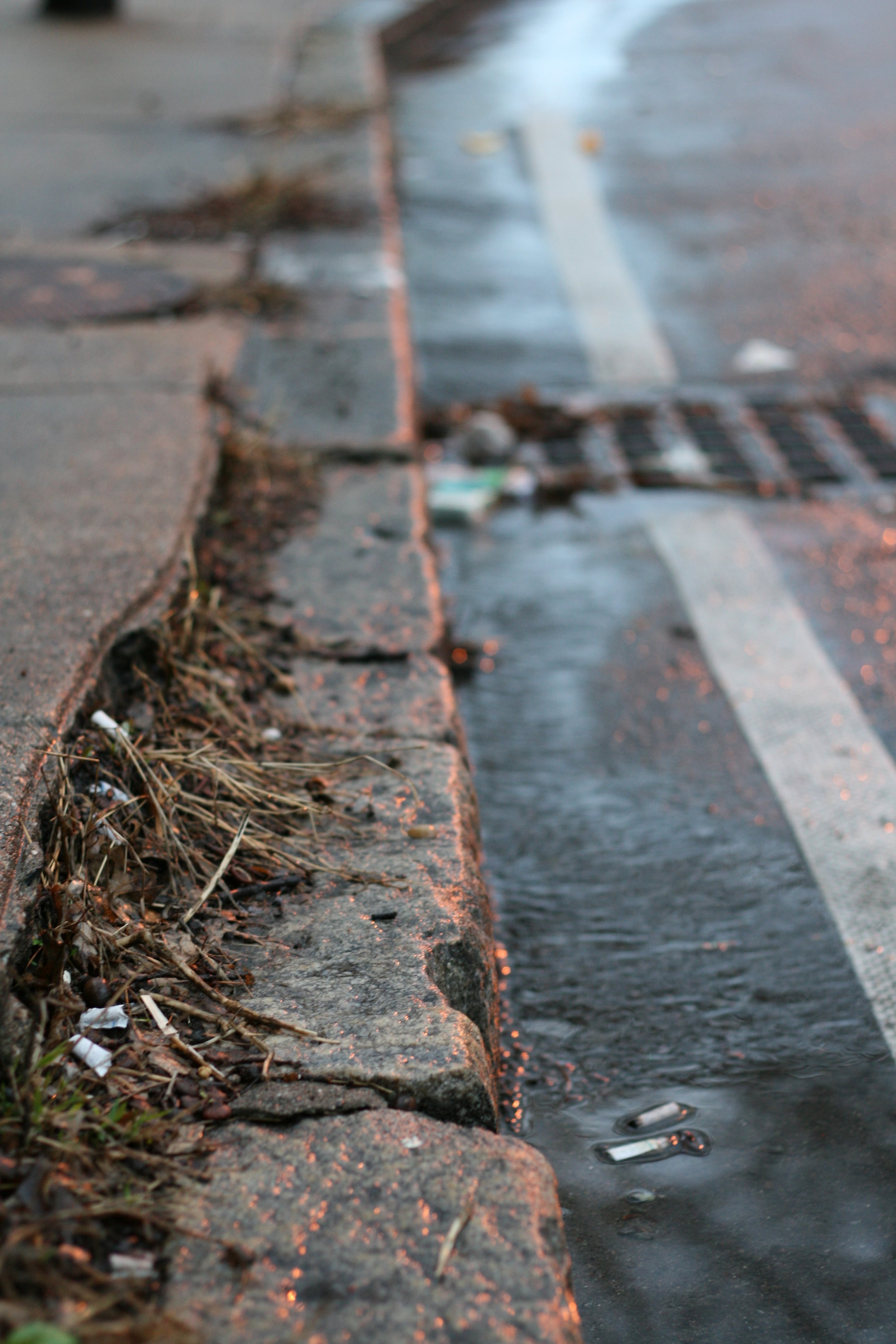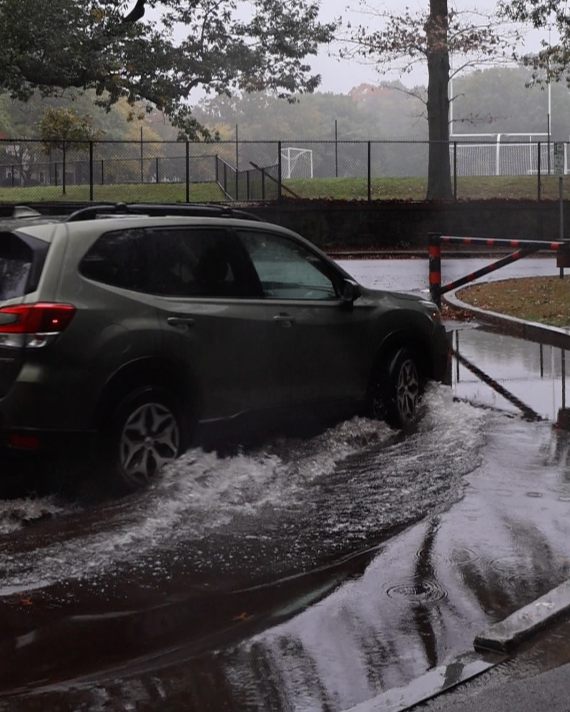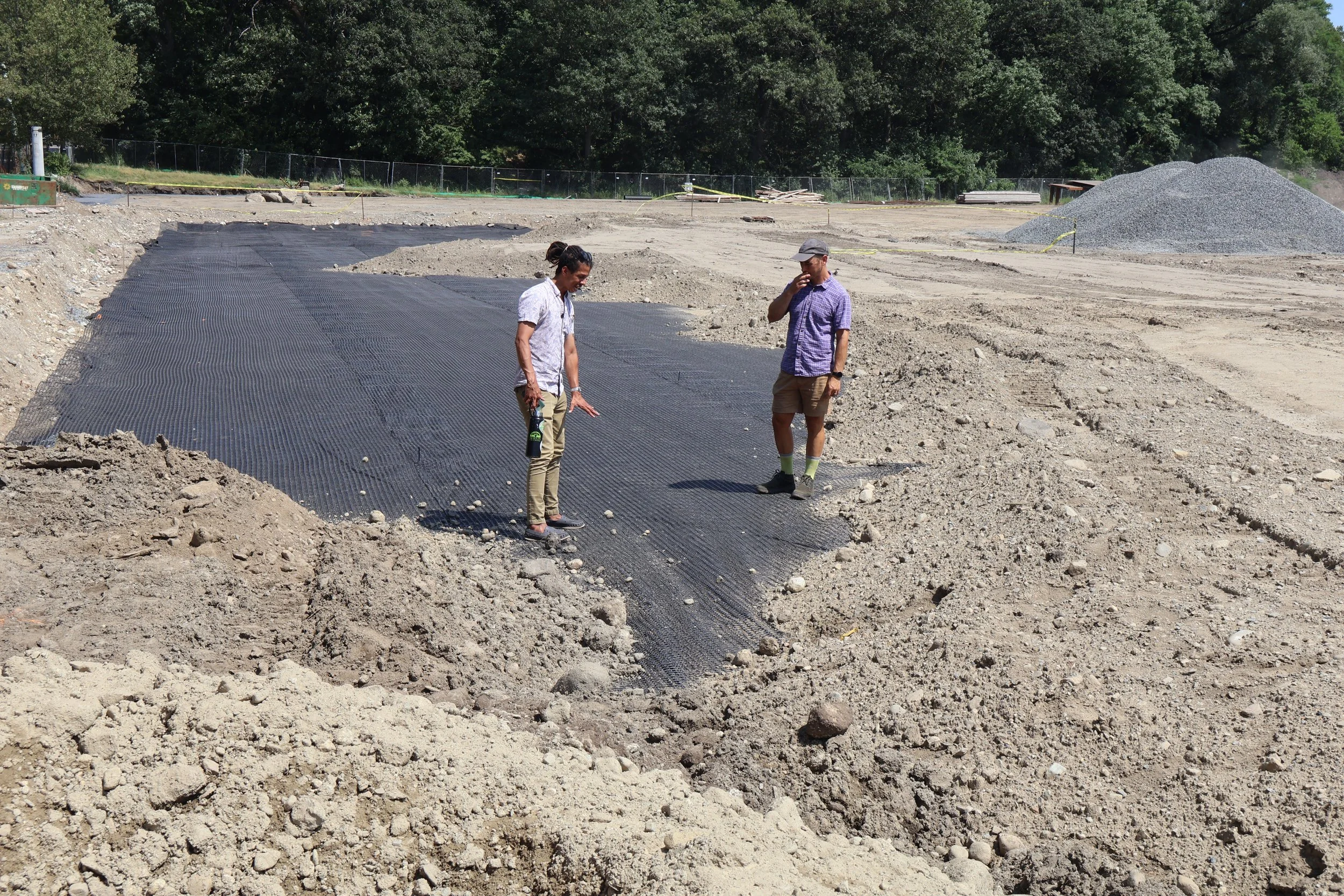STORMWATER SOLUTIONS
Curbing stormwater pollution for a cleaner Charles River.
Stormwater pollution is the greatest threat to a clean Charles.
In our highly urbanized watershed, every rainstorm washes gasoline, trash, pet waste, organic debris, and more straight from our roads, parking lots, and roofs into the Charles River.
Stormwater runoff degrades the river’s health—Excess nutrients fuel the growth of harmful algae and shift conditions to favor invasive species, and bacterial contamination from runoff creates unsafe conditions for recreation during and after wet weather.
What we’re doing:
-

Strengthening Stormwater Regulations
Thanks in large part to CRWA, the Charles River has some of the strongest stormwater regulations in the country. Collectively, each town in the watershed must meet science-based reduction goals by the year 2038. We work with watershed partners to share best practices, track progress toward our goals, and advocate for science-based approaches to mitigation.
-
Advancing Green Stormwater Projects
We work with municipal partners to identify opportunities, design, build, maintain and fund Green Stormwater Infrastructure (GSI) all across our watershed. We promote nature-based design that restores the natural water cycle, reduces pollution and helps to bring nature back into our built environment.
-

Eliminating Combined Sewer Overflows
Combined sewer overflows (CSOs) occur when heavy rain and intense storms cause sewer systems to overflow into local waterways. Through our CUT THE CRAP campaign, we are advocating for the Massachusetts Water Resources Authority (MWRA) and the cities of Cambridge and Somerville to eliminate the 10 active CSO outfalls along the Charles that are polluting the river.
-
Establishing Climate Adaptation Stormwater Standards
Communities across Massachusetts are already feeling the effects of stronger, more frequent storms. Outdated stormwater rules aren’t designed for today’s climate reality. We’ve gathered the best examples from these local leaders and built a set of forward-looking recommendations called our Climate Adaptation Stormwater Standards (CASS).








A new Sierra article highlights the most significant challenge we’re experiencing regarding a clean Charles River: stormwater.